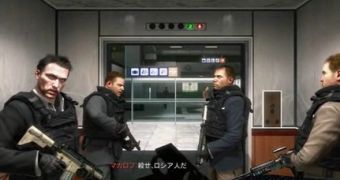The controversy of subtitles vs dubs has its roots most likely in the first media product that ever had sound and was localized. Most often met in films and animation, the argument is rather simple. Audio dubs are almost without exception horrible, as the voice actors hired to reproduce the original script fail to relay any kind of emotion and rob the product of any immersion for the viewer. The studio responsible for the dub usually relies on the product's popularity and wants nothing out of its voice actors than to finish the job as quickly as possible, paying little, if any, attention to the quality of the finished product.
In other cases, the audio is recorded entirely separately from the video, with the actors never even getting a look at the images they're giving sound to or the original audio track. On the other hand, the only problem with subtitles is when the written alphabet differs from language to language, and it's very difficult to actually read and understand them. As a rather large producer of media products, this is a fairly well known problem by Japan and its “Engrish.” A rather large game that also had to face this problem is the overwhelmingly popular release of Infinity Ward, Modern Warfare 2.
At the beginning of its famous airport massacre scene, a rather crucial plot line is spoken by Vladimir Makarov, the ultimate bad guy of the game. It's a short line, but it puts a lot of things into context. The “Remember, no Russian” comes to emphasize that this is a devious and unscrupulous act committed by Russians against Russians, in which Makarov decides to sacrifice his fellow countrymen to achieve his goal of revenge. It also ads a lot to the character development, firmly depicting Makarov as a “bad guy.”
But in the Japanese version of the game, the entire line is rephrased, or better said rewritten into, “Korose, Roshia-jin da,” which translates into, “Kill them, they are Russians.” The outcome is the same, a massacre, but the reason behind the action is entirely changed. This way, it's like Makarov has a personal grudge against the Russians and killing them is not a means to an end, but his very final purpose. Of course, the Japanese gamers have also noticed this, and they've started their own, little boycott, threatening to stick to the original version of the game, and not purchase the localized, Japanese one.

 14 DAY TRIAL //
14 DAY TRIAL //